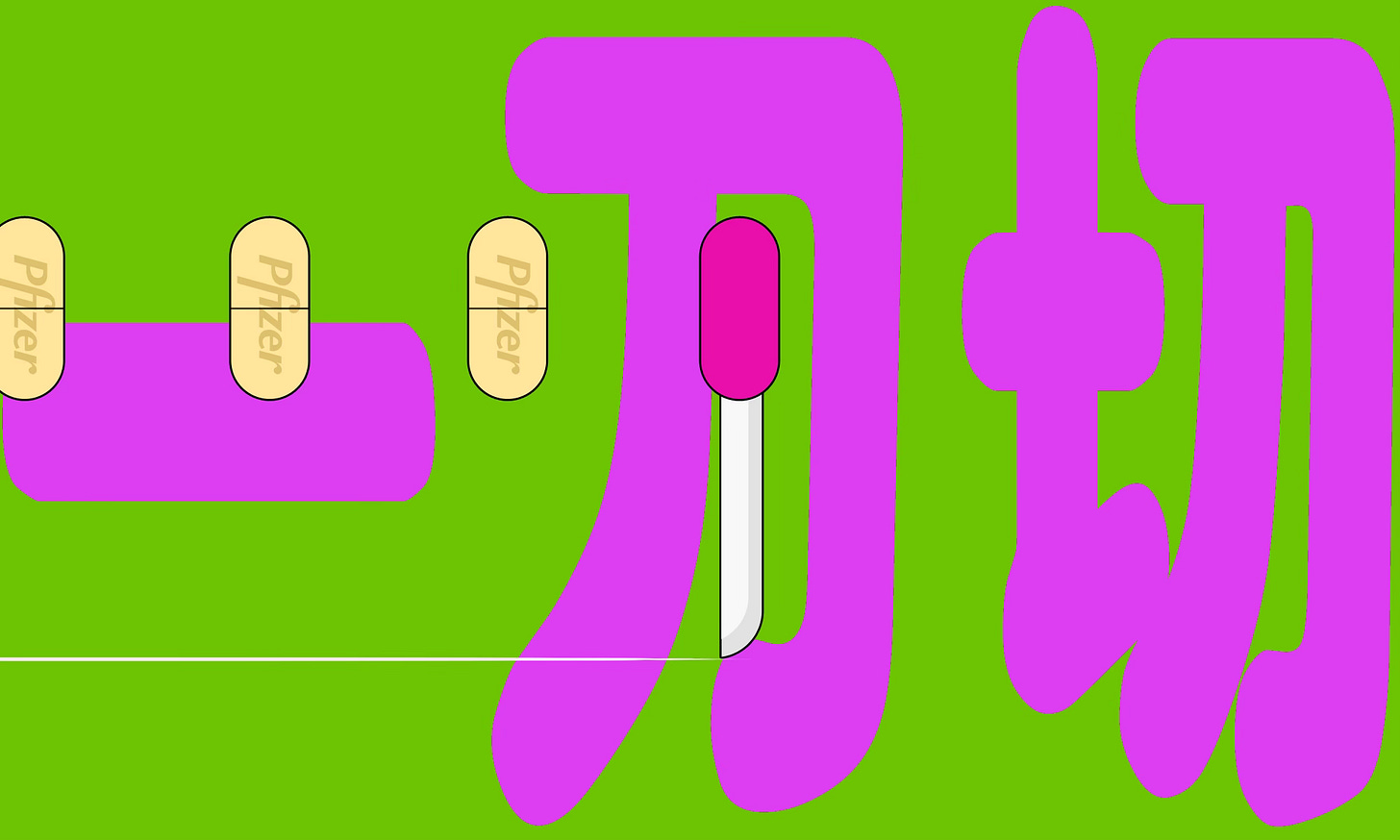"One size fits all" — Phrase of the week
Patients push back on lack of imported medicines

Our phrase of the week is: "one size fits all" (一刀切 yì dāo qiē).
Context
The availability of imported medicines in Chinese public hospitals has become a heated topic in recent weeks.
It began in August when a father from Hangzhou shared his distress online after struggling to secure medicine for his child.
His six-year-old was suffering from atypical pneumonia, a common illness among children returning to school, but one that can become serious if not treated promptly.
Zithromax (希舒美 xī shū měi), an imported drug by American pharma company Pfizer, is often considered the gold standard treatment for this condition. However, when the father visited a hospital in Hangzhou, he was told that Zithromax was no longer available—despite it being offered just six months earlier for his other child. The doctor explained that only a domestically produced generic version was available.
After two days of treatment, the child's condition worsened with a high fever. A friend then advised the father to visit the Zhejiang Provincial Children's Hospital, where after hospitalization, the child’s fever finally subsided.
This story sparked an outpouring of sympathy on Weibo, with many users recounting similar struggles to access imported drugs.
The shortage is tied to a national drug procurement policy, introduced in 2018, which prioritizes cheaper domestic generics over more expensive patented medicines.
When it comes to drugs not covered by public procurement, many hospitals choose to "use them less or even not purchase them."
They meet the "hard targets" of public procurement in a one-size-fits-all manner and even use cost control as a metric for performance evaluation and promotion.
不少医院针对一些集采未中选药物,选择“少使用甚至不采购”。一刀切式地完成集采“硬指标”,甚至将控费与评优、绩效、奖惩机制绑定。
bùshǎo yīyuàn zhēnduì yìxiē jícǎi wèi zhòngxuǎn yàowù, xuǎnzé “shǎo shǐyòng shènzhì bù cǎigòu”. yì dāo qiē shì de wánchéng jícǎi “yìng zhǐ biāo”, shènzhì jiāng kòngfèi yǔ píngyōu, jìxiào, jiǎngchéng jīzhì bǎngdìng.
And with that we have our Sinica Phrase of the Week!
What it means
The phrase “one-size-fits-all” is commonly expressed in Chinese with three characters that directly translate to “one” (一 yī), “knife” (刀 dāo), and “cut” (切 qiē).
The phrase was first popularized in the novel, The Bell and Drum Towers (钟鼓楼 zhōnggǔlóu) by Liú Xīnwǔ 刘心武.
Born in 1942, Liu is a Chinese novelist known for pioneering the Scar Literature (伤痕文学 shānghén wénxué) movement with his story The Class Teacher (班主任 bānzhǔrèn). He is also renowned for his studies of the classic novel Dream of the Red Chamber (红楼梦 hónglóumèng).
Published in 1985, The Bell and Drum Towers (钟鼓楼 zhōnggǔlóu) is set in post-Cultural Revolution China, exploring the lives of Beijing residents living near the city’s historic Bell and Drum Towers. The novel captures the tension between tradition and modernization, highlighting the impact of these changes on everyday struggles and relationships.
The phrase appears in the first chapter:
"In this world, there are no situations where everything is resolved in one stroke, nor are there times when everything is perfectly logical and has a happy ending."
“世界上的事,没有一刀切的时候,没有一切都合理都美满的时候。”
shìjiè shàng de shì, méiyǒu yì dāo qiē de shíhou, méiyǒu yíqiè dōu hélǐ dōu měimǎn de shíhou.
In contemporary Chinese, "in one stroke" or "in one cut" is used to convey “one-size-fits-all,” typically in a pejorative sense, criticizing policies or actions that fail to account for different circumstances.
The changes to China’s drug procurement policies in recent years aim to reduce costs. However, as seen in the case of the child in Hangzhou and other similar stories, the implementation of these policies often overlooks individual contexts, leading to ineffective treatments and limiting patients' freedom to choose between more affordable generics or more effective original drugs.
Andrew Methven is the author of RealTime Mandarin, a resource to help you learn contemporary Chinese in context, and stay on top of the latest language trends in China.
Read more about how this story is being discussed in the Chinese media in this week’s RealTime Mandarin.


